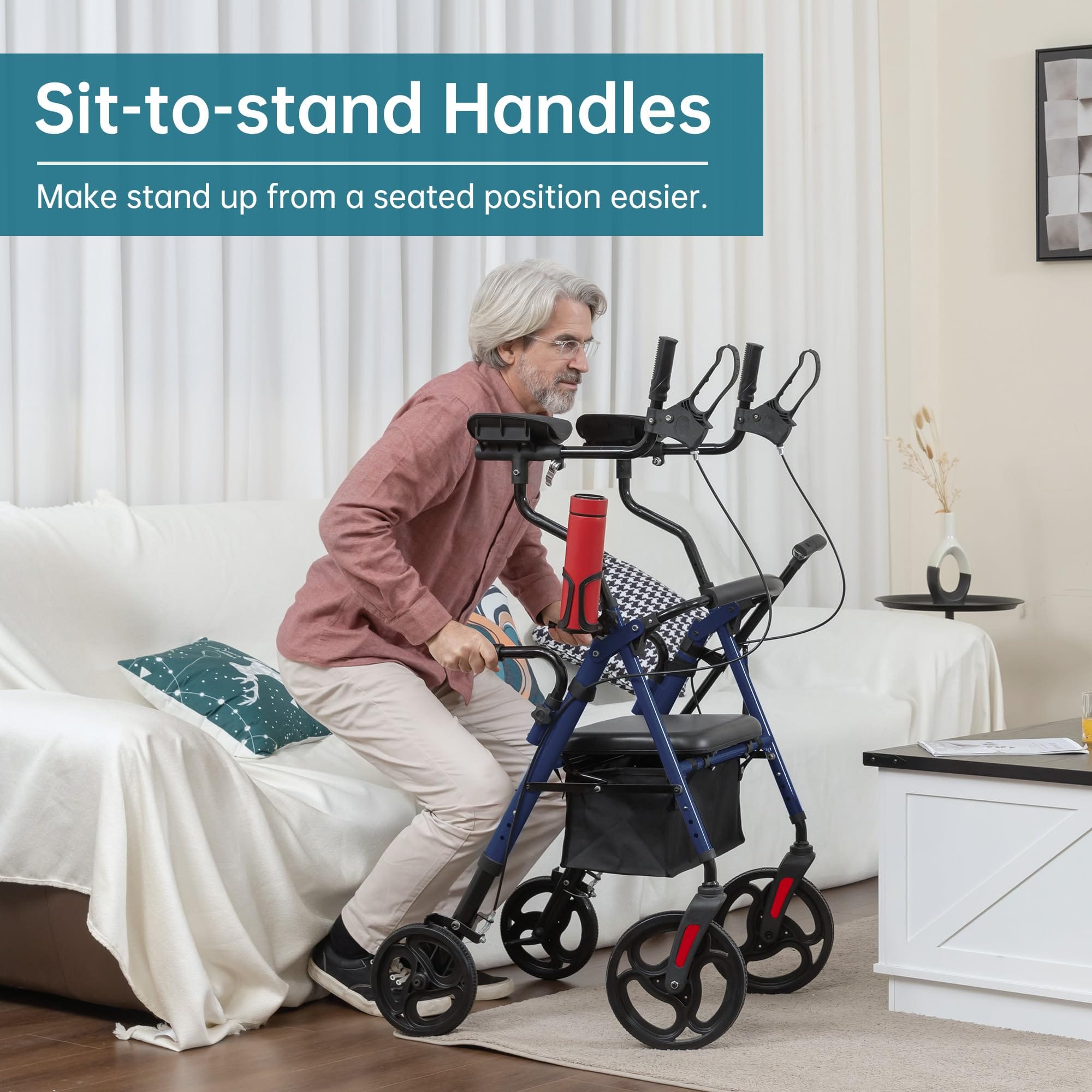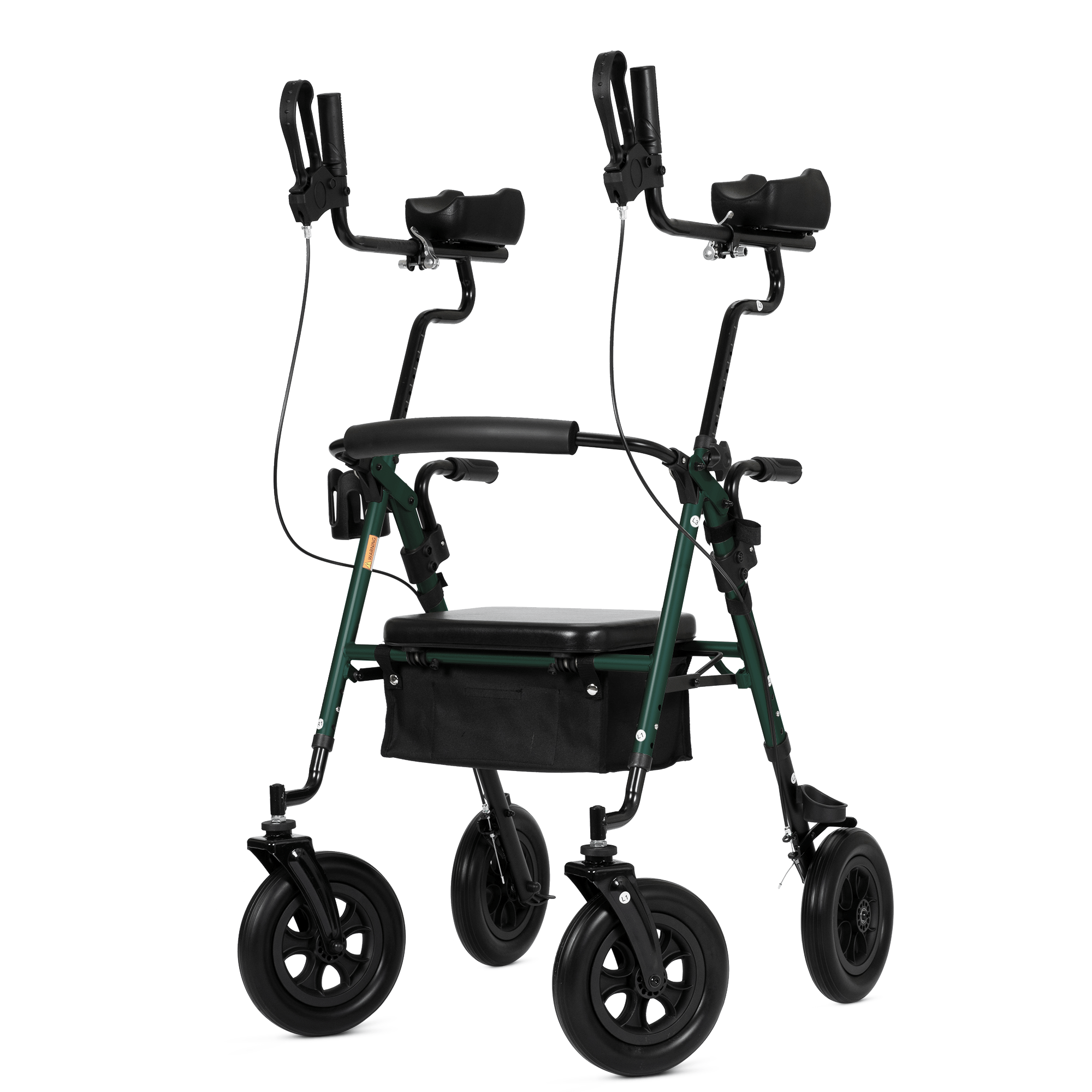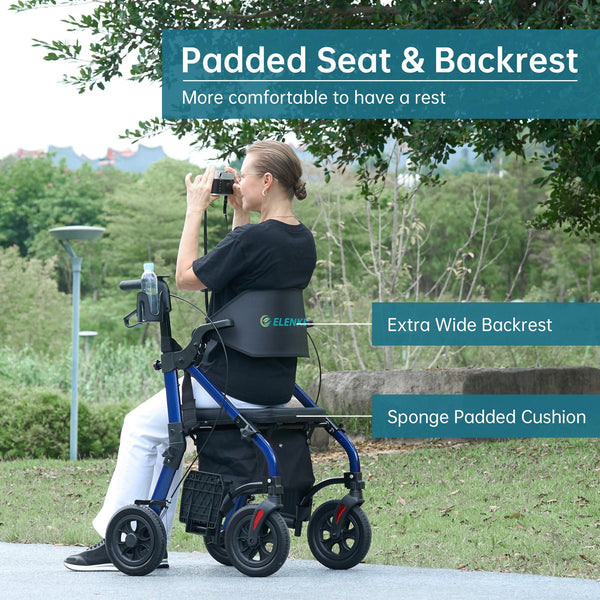Does a Rollator Walker Help with ALS?
Apr 21, 2025
If you or someone close to you has been diagnosed with ALS (Amyotrophic Lateral Sclerosis), you probably know how quickly it can change everyday life. Things like walking across the room, standing up from a chair, or just getting to the bathroom can start to feel like climbing a mountain. That’s where mobility aids come in—and one that gets a lot of attention is the rollator walker.
But here’s the real question: Can a rollator walker assist someone with ALS? The short answer is yes—for many people, it absolutely can. But like most things in life, it depends on the person, the stage of the disease, and the type of walker you choose.
What is ALS?
ALS is a progressive neurodegenerative disease that affects your muscles. Over time, it causes muscle weakness, stiffness, and eventually difficulty with things like walking, talking, and even breathing. Some people experience symptoms more in their arms, others in their legs. It varies from person to person.

So when mobility starts to become an issue, having the right support matters. That’s where a walker with seat and wheels—like a rollator—can make a real difference.
How a Rollator Walker Can Help
ALS can make you feel like you're losing control of your body. A rollator walker with seat can help you feel a little more secure on your feet and give you a way to keep moving safely.
Here are a few ways it can help:
1. It gives you stability
Balance gets tricky when your legs don’t cooperate. A stand up walker gives you something sturdy to hold onto while you move around the house or go out. No more bumping into furniture for support or holding onto walls like a ninja.
2. You can take breaks when you need to
Fatigue hits hard with ALS. Having a walker with a built-in seat means you don’t have to search for a place to rest. Just park the brakes, sit down, catch your breath, and get going again. That’s what makes a rollator walker with seat so handy.

ELENKER YF-9008C Upright Rollator Walker, Stand Up Walkers for Seniors with Armrest
3. It moves with you - literally
Unlike standard walkers that you have to pick up and move, rollators glide across the floor thanks to their wheels. That’s easier on your arms and shoulders, especially if you’re starting to lose upper-body strength too.
Different Types of Walkers for Different Needs
Not all walkers are created equal, and that’s especially important when you’re dealing with something like ALS. You want something that matches your level of mobility and comfort. Here are some types to consider:
Upright Rollator Walker
This style keeps you standing taller, with handles that are positioned higher so you don’t have to hunch over. That’s great for posture and can reduce back and neck pain. If slouching is already uncomfortable, an upright walker with seat could be a solid option.

HFK-9236T4 ELENKER Upright Rollator Walker
Heavy-Duty Rollators
If you need extra support—maybe for balance or stability—heavy-duty rollators are made with stronger frames and wider seats. They’re ideal if you're looking for something sturdy that can handle a little more weight and provide a steady ride.

HFK-9219B PLUS ELENKER Heavy Duty Upright Walker
Walker with Seat and Wheels
This is your standard rollator walker: four wheels, hand brakes, a comfy seat, and maybe even a basket or storage pouch. It’s perfect for folks who are still mobile but need help staying balanced or taking breaks.
Transport Wheelchair Combo
Here’s a smart option if you have good days and bad days. Some walkers convert into transport wheelchairs, which means you can walk when you’re up for it, and ride when you’re not. Caregivers love this one, especially when you’re out and about.

HFK-9269KD All Terrain Rollator Walker Transport Wheelchair Combo, 2 in 1 Rolling Walker with Padded Seat and Wide Backrest
Elenker Rollators
Elenker makes a bunch of different styles—upright rollators, heavy-duty models, and those handy walkers with seat and wheels. They’re often lightweight, adjustable, and come with extras like backrests, storage bags, and comfy hand grips. They’ve got something for just about every need.
What to Consider Before Getting a Rollator Walker
Alright, so maybe you’re thinking about picking up a rollator walker. That’s awesome—but there are a few things to think about first:
Can the person still grip and brake?
Hand strength is a big deal. Rollators usually have brake handles, and if someone can’t squeeze them firmly, that could be a safety risk. Make sure the person can operate it easily and comfortably.
Is cognition or coordination affected?
Sometimes ALS affects more than just movement—it can affect memory or reaction time. If the person is struggling to remember how to use the brakes or steer safely, it might be time for something simpler or more supportive.
Has a physical therapist been involved?
Seriously, a PT can work magic. They’ll help figure out exactly what kind of walker is safest and most comfortable. They can also show you how to adjust it, use it properly, and keep it in tip-top shape.
When a Rollator Isn’t Enough Anymore
As ALS progresses, even a rollator might not be enough. That’s when you might need to look into wheelchairs or full transport wheelchair options. It’s not a step backward - it’s just the next level of support to help maintain safety and comfort.
And remember, it's totally okay to outgrow one type of mobility aid and move on to another. It’s all about making each day a little easier.
So, can a rollator walker assist someone with ALS?
Absolutely—especially in the earlier stages, when mobility is still somewhat manageable. Tools like an upright rollator walker, walker with seat and wheels can keep folks moving, confident, and independent a little longer.
Just remember, everyone’s needs are different, so solutions vary. Talk to a healthcare provider, test out a few models, and don’t be afraid to switch things up as needs change. Whether it’s a heavy-duty walker or a transport wheelchair, the goal is always the same: better support, better safety, and better quality of life.
If you're shopping around or just doing research for a loved one, take your time. The right walker can really make a difference—one steady step at a time.











